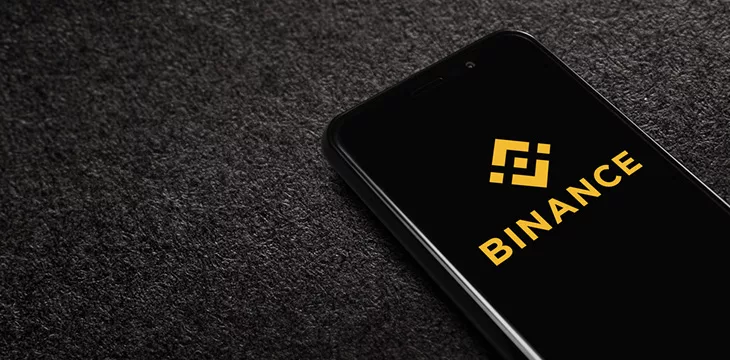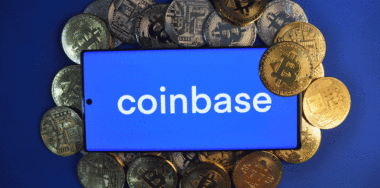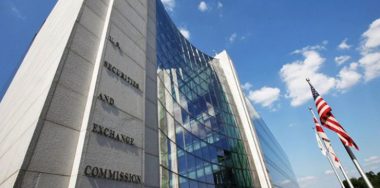How Binance reacts to its imminent expulsion from the Philippines will prove a key test of the digital asset exchange’s alleged commitment to regulatory compliance.
Last November, the Philippine Securities and Exchange Commission (SEC) announced that it had initiated restricting access to Binance based on the exchange’s longstanding refusal to secure a license to operate in the country. The announcement opened a three-month window where local residents could withdraw their assets from Binance before the whip comes down on February 29.
The announcement came shortly after Binance’s $4.3 billion settlement of criminal charges brought against the exchange and its founder/CEO, Changpeng ‘CZ’ Zhao, by U.S. authorities. It also followed multiple requests by the Philippine think tank Infrawatch PH for the SEC and other government agencies to take action against Binance before serious harm befell the exchange’s numerous Philippine customers.
The SEC said it would work with the National Telecommunication Commission (NTC) and the Department of Information and Communications Technology (DICT) to block local access to the Binance website. The SEC also asked Google (NASDAQ: GOOGL) and Facebook’s parent company, Meta (NASDAQ: META), to block Binance’s marketing material from appearing on Philippine users’ devices.
The SEC suggested in December that it could delay its February 29 deadline depending on the “feedback” it received from unspecified sources. Outside of government, the Philippine public appears split on whether or not the restrictions will truly curb their access to the exchange.
At the time of the SEC’s November announcement, Binance issued a statement saying it was “committed to aligning with applicable local regulations.” Binance further claimed that under its “new leadership”—a.k .a. CZ’s replacement Richard Teng—it had “taken proactive steps to address the SEC’s concerns.”
Binance may have a new leader but the above statement is the same non-specific runaround the exchange habitually issued whenever a regulator in a particular market fired a shot across the exchange’s bow. Very rarely did Binance ever match its compliant rhetoric with actual compliance.
Recall that CZ stated way back in June 2022 that Binance was “interested” in acquiring “at least two types of licenses” in the Philippines. CZ said at the time that Binance would secure the necessary permits “within months.” It’s now been twenty months and counting…
Typically, the Binance support team told Philippine customers just this week that the SEC announcement “does not have an impact on Binance.” The team went on to claim that Binance is “committed to aligning with applicable local regulations” and is “actively working on addressing the SEC’s concerns with the utmost priority.”
Meanwhile, the dedicated Binance Philippines X/Twitter account hasn’t tweeted since June 2023, right around the time that Infrawatch issued a follow-up letter to the SEC and other local regulators regarding Binance’s ongoing activities. The main Binance account hasn’t mentioned the Philippines since about a month before the SEC’s November announcement.
Earlier this month, Infrawatch’s convenor, Terry Ridon, told CoinGeek that Binance’s initial response to Infrawatch’s campaign was to “PR blitz their way through.” While this PR blitz—including posing as a crime-fighting organization—may have bought Binance some time, the SEC’s November action shows that regulators can only be pushed so far before they act.
Ridon added that he was particularly concerned with Binance’s peer-to-peer (P2P) feature, which allows users to trade directly with other customers rather than use the exchange as an intermediary. Ridon called the P2P feature “one big red flag for anti-money laundering (AML) regulators in the Philippines.”
The SEC has indicated that it will target any exchange that refuses to acquire a local virtual asset service provider (VASP) license and register as a corporation in the Philippines.
Hong Kanada
Philippine digital asset traders should be aware of the perils of being a Binance customer in markets where the company refuses to establish a concrete base of operations—i.e., all of them.
Binance never established any offices in Canada, nor did it secure any of the necessary permits to conduct operations in Canada before officially announcing its exit in the spring of 2023. Ontario securities regulators had on multiple occasions warned Binance that it was operating without permission and to GTFO already.
Long before Binance left, some Canadian customers launched a class action suit accusing the company of lying about its right to sell ‘crypto’ derivatives products without a permit. Their claim was based on a section of the Ontario Securities Act that allows purchasers a right of action for rescission or damages against a company selling securities without filing/delivering a prospectus.
Binance sought to stay (dismiss) the proceedings by pointing to the terms of service that all customers were required to acknowledge before being allowed to trade derivatives. The terms required disputes between Binance and its customers to be settled via arbitration in a Binance-chosen jurisdiction. Binance changed this jurisdiction four times between August 2019 and March 2021, with the last jurisdiction being Hong Kong.
We’ll spare you the rest, but last December, the Superior Court of Justice–Ontario
dismissed Binance’s motion for a stay, calling Binance’s arbitration agreement “unconscionable, and therefore unenforceable.” The court found that Binance “engineered the arrangement to take advantage of the complexity that was hidden behind the superficially benign appearance of an arbitration clause.”
The court noted that most Canadian derivatives traders have less than C$5,000 (U$3,699) in the market, while the median cost to pursue Hong Kong arbitration of disputes under US$1,000,000 is nearly C$37,000 (U$27,374) before travel and accommodation. The choice of Hong Kong—with which even Binance had no obvious connection—could, therefore, “effectively amount to a grant of immunity to Binance.”
While that legal backhand may be satisfying to read, Binance’s Canadian customers have little chance of getting money out of a company with no Canadian presence. Philippine customers would do well to remember that when Binance continues to serve the market long after local regulators officially declare it off-limits.
Who monitors the monitor?
Stateside, CZ is currently out on bond awaiting his recently postponed sentencing hearing, which will now transpire in a Seattle federal court on April 30. On February 16, the U.S. Department of Justice (DOJ) submitted a sentencing memo in its case against Binance, which includes its desire to monitor all transactions on the exchange over the next five years.
Binance agreed to this 24/7/365 third-party monitoring when it reached its November deal with the DOJ. Binance also agreed to allow a monitor to examine years’ worth of historical transactions should prosecutors wish to trace the flow of funds they believe is linked to illicit activity.
The agreed-upon process for selecting this monitor involved a back-and-forth between Binance and the DOJ, in which Binance was to offer a list of three prospective candidates for consideration by the DOJ and the Treasury Department’s Financial Crimes Enforcement Network (FinCEN).
Bloomberg reported last week that Binance’s proposed candidates include the controversial law firm of Sullivan & Cromwell (S&C), last seen presiding over the bankruptcy of Binance’s former rival exchange FTX. That gig has earned S&C over $180 million, and the process itself is nowhere near its conclusion.
But S&C is equally controversial for having advised FTX before its bankruptcy. For some, this raises questions about how much S&C knew of FTX founder Sam Bankman-Fried’s wholesale pillaging of FTX customer assets to cover up billions lost to bad bets made by his Alameda Research traders.
Last week, a group of former FTX customers sued S&C in a Miami federal court based on their view that S&C “actively participated” in the fraud that brought down FTX. The suit alleges that S&C attorneys “were eager to craft not only creative but misleading strategies that furthered FTX’s misconduct.”
Despite all these red flags, Bloomberg claimed S&C had the inside track on the Binance monitoring job due to it being the DoJ’s preferred candidate. S&C partner Sharon Cohen Levin—a former federal prosecutor who led the money laundering unit at the U.S. Attorney’s Office for the Southern District of New York—will reportedly lead the S&C team tasked with this monitoring operation.
Let’s hope the DoJ knows what it’s doing.
Follow CoinGeek’s Crypto Crime Cartel series, which delves into the stream of groups—a from BitMEX to Binance, Bitcoin.com, Blockstream, ShapeShift, Coinbase, Ripple,
Ethereum, FTX and Tether—who have co-opted the digital asset revolution and turned the industry into a minefield for naïve (and even experienced) players in the market.
New to blockchain? Check out CoinGeek’s Blockchain for Beginners section, the ultimate resource guide to learn more about blockchain technology.








